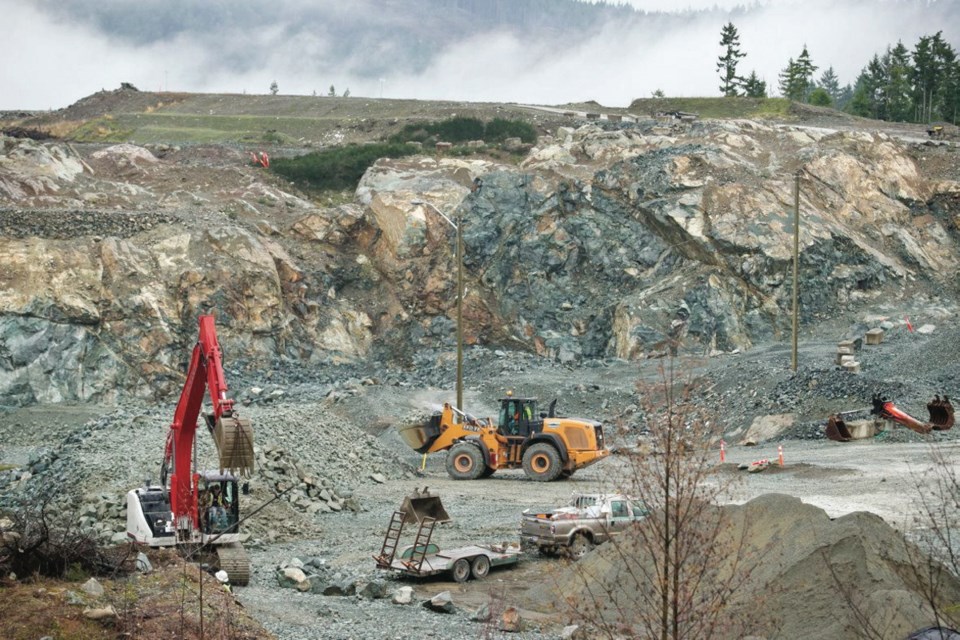The B.C. government has suspended a permit that allowed a quarry to receive and store contaminated soil upstream from Shawnigan Lake, a source of drinking water for the region.
Environment Minister Mary Polak announced the move Friday, using rarely used powers under the Environmental Management Act.
“Effective immediately, I have suspended the waste discharge permit for Cobble Hill Holdings due to their failure to address both outstanding as well as past non-compliances,” Polak said in a statement.
The minister said she will cancel the permit if the company fails to submit required materials within 15 business days.
Her letter to the company states that the ministry must approve a closure plan for the site, a cost estimate for the closing, and two water management reports before the site can reopen.
The minister wants the company to provide “an adjusted financial security in the form of an irrevocable letter of credit.”
Polak said the company must still meet all monitoring requirements regardless of the suspension. “Further to that, I am also issuing a spill prevention order to ensure appropriate measures are taken to reduce the risk of leachate escaping from the facility into the environment.”
Polak first threatened to close the site in letters to quarry owner Cobble Hill Holdings last fall. She gave the company until Dec. 20 to respond.
Victoria lawyer John Alexander, who acts for Cobble Hill Holdings, said the company met the requirement for more reporting on Dec. 19.
“It was only today that [the company] received a response from the ministry asking for further work, and the company will work diligently to provide further response,” Alexander said.
“With the legal challenges that have limited the operations and the revenue to something around eight months out of the 3 1⁄2 years since the permit was issued, responding to the ministry's increasing requests for more study, and more review of the site has been very challenging. Nevertheless, the site has to be run responsibly.”
Alexander said the company accepts that the site must be managed to the highest standard and that the ministry’s technical concerns have to be addressed.
“If those officials think it is important to suspend the permit until the scientific and technical questions are answered, that is consistent with the precautionary principle that should apply, and that judgment is accepted.”
The suspension comes on the heels of a B.C. Supreme Court victory by the Shawnigan Residents Association this week that stayed the permit and ordered the Environmental Appeal Board to take another look at the case.
Polak said in an interview that her decision to suspend the permit was unrelated to the court decision. “We’ve been developing the case for some time,” she said. “It’s connected to the letters that I have sent and the deadlines that we’ve placed on them and the expectations. This is one more step down that path.”
She said the suspension is an “exceptional” move for an environment minister to make. “So we’ve been developing what we believe is a strong case in order to take the action.”
Sonia Furstenau, who has helped lead the fight against the site as an area director of the Cowichan Valley Regional District, said Polak’s announcement caps a remarkable week for Shawnigan Lake residents.
“I’m already getting a lot of emails and messages in, as the word is getting out,” she said. “This is the best week we’ve had in years.”
She said Polak’s decision and the court ruling represent significant victories for residents who have fought the project for years.
But residents will not be satisfied until the permit is revoked and the soil removed, she said. “This is a step toward that, but [Polak] has to be very serious about realizing that that soil never should have been put there in the first place.”
More broadly, Furstenau said the case shows that citizens can fight back.
“We’ve demonstrated that you can stand up, you can say no, and you can, as a community, protect your water, and every community should have the right to do that.”



